CEE | Center for Experimental Ethnography
Menu
|
For our April Third Thursday event, artist and visual anthropologist Kara Mshinda (Tyler School of Art and Architecture) presents artwork from her current project All Hands Hold and discusses the relationship between art practice, visual narratives, and ethnography in conversation with Grace Sanders Johnson
0 Comments
A Black Transnational Ethnography of HIV/AIDS, Reproduction, & Dancehall in Neocolonial Jamaica
This talk frames Jallicia Jolly’s articulation of a Black transnational feminist ethnography of HIV/AIDS and reproduction. Jolly discusses how this methodological and epistemological practice displaces the dominant knowledge about Black women’s sexuality, young women’s reproductive capacities, and HIV and AIDS, thus rewriting colonial scripting of black female sexuality as well as humanitarian and biomedical portrayals of women's experiences. She explores dancehall - a soundtrack of fraught possibility of Black women’s erotic and political lives - as an extant arena through which young Jamaican women redefine historic racist and sexist stereotypes of urban working-class women as non-political actors, while contesting the heteronormative narratives of Black female pathology and the boundaries of exclusionary citizenship. Drawing from an intersectional ethnography of Jamaica women’s grassroots HIV/AIDS organizing, this talk illustrates how women’s multi- layered narratives and embodied experiences make way for alternative, expansive, and authentic visions of identity, politics, and community for multiply marginalized Caribbean subjects existing at the margins. dr. JALLICIA ALICIA JOLLY
Dr. Jolly connects her research to tailored community interventions that advance equity, systemic change & community-building within and beyond U.S. borders. She is appointed as a Visiting Research faculty by the Center for Interdisciplinary Research on AIDS at the Yale School of Public Health to the Research Education Institute for Diverse Scholars (REIDS). A public scholar committed to political action, Dr. Jolly co-leads Birth Equity & Justice Massachusetts (BEJMA), a reproductive justice coalition that aims to advance maternal health equity in policy and to improve the health outcomes of Black and Brown birthing people. Her public writing, which merges her community-based work on black politics, women's health, and political leadership in the United States and the Caribbean, has appeared in The Washington Post/The Lily, USA Today, Jamaica Gleaner, Ms. Magazine, and Huffington Post. Dr. Jolly's work has been published in American Quarterly, The Lancet, Feminist Anthropology, Souls, and Journal of General Internal Medicine and has received support from the Ford Foundation, Andrew Mellon Foundation, Brown University's Pembroke Center for Teaching and Research on Women, the American Association of University Women, MIT, and Blue
Cross Blue Shield of Massachusetts Foundation.
As we return our embodied selves to institutions, as we encounter the “new normal” that feels frighteningly and tirelessly old, the Collective for Advancing Multimodal Research Arts (CAMRA) invites you to the 2023 Screening Scholarship Media Festival, works in progress. We hope to realize a vibrant in-person festival (with a companion virtual program) that reflects and extends on the provocations, lessons and interventions of SSMF 2020/21, Rupture and Repair, and SSMF 2022, PAUSE that asked what it meant/means to be and to make in crisis, to survive and live into collapse.
Our programmatic vision is guided by Denise Ferreira Da Silva who in the essay “Invisible\Obliterating” asks, “[so] what is left after critique, after naming, explaining, demanding, protesting, and burning? What is left for us to do? Can art open a way into, through, across, and then beyond the naturalising gestures that feed the forces of representation?” We offer works in progress as a way to think together about how creative practice can contribute to a liberatory future after critique, after naming and explaining, and where we as scholars, educators, students, artists, activists, and the communities and institutions we inhabit land in that imagination. We are led to ask: How do different modes and forms contend with unfinishability, with mistakes, with imperfection, in creative work and daily life? What is afforded by sharing imperfectly? / Where does our critical emphasis lie when we know we are engaging with something that is unfinished? What practices of gathering and engagement as spectators and makers do we forge "after critique"? / What are the necessary conditions for an emphasis on process and unfinished work? / What can creative practice that is necessarily in a state of flux give to the making of a more liberatory future? / What are the sensory attunements that makers, and spectators, develop in the encounter with creative work that are useful in interpersonal relationships and social, cultural and political engagements that stretch beyond the moment and space of such encounter? / What is creativity in work, what is creativity at work? Where is our work taking us? What work do we need to do to get to the place of our becoming? We imagine works in progress expansively and the program includes AUDIO / EXHIBITS & INSTALLATIONS / PERFORMANCES / RESEARCH PRESENTATIONS / VIDEO & FILMS / WORKSHOPS that engage the theme and/or the questions we lay out above. SSMF 2023 will take place in person at the University of Pennsylvania. The Screening Scholarship Media Festival 2023 is produced in collaboration and with the support of the Annenberg School for Communications, the Graduate School of Education, the Center for Experimental Ethnography, and the Sachs Program for Arts Innovation.
For our March Third Thursday event in 2023, Rabani Garg and Larissa Johnson and Indivar Jonnalagadda join in conversation about the upcoming Screening Scholarship and Media Festival, open March 31 through April 2! They will discuss the theme of "Works in Progress" and the ways that the programmatic vision has been guided by Denise Ferreira Da Silva who in the essay “Invisible\Obliterating” asks, “[so] what is left after critique, after naming, explaining, demanding, protesting, and burning? What is left for us to do? Can art open a way into, through, across, and then beyond the naturalising gestures that feed the forces of representation?” Works in progress as a way to think together about how creative practice can contribute to a liberatory future after critique, after naming and explaining, and where we as scholars, educators, students, artists, activists, and the communities and institutions we inhabit land in that imagination.
MARCH 1 | STREAMING ON ALL PLATFORMS We are proud to announce the launch of our podcast, "Reckoning and Repair: The Art That's Touched Philadelphia". Each of the twelve 15-minute episodes features a richly experimental oral history with an artist, organizer, or curator who has worked in the city of Philadelphia, and whose practice reckons with exclusionary social histories and the (im?)possibilities of repair in art spaces and beyond. It was created by Penn students in conversation with artists and organizers in a course by Dr. Alissa Jordan, “Reckoning and Repair: Conversations with Contemporary Artists,” at the Center for Experimental Ethnography. “Reckoning and Repair” will be released in three curated mini-series of four episodes released every two weeks starting on March 1 2023, and the podcast is in conversation with the March 2023 exhibit, “Rising Sun: Artists in an Uncertain America,” organized by the African American Museum of Philadelphia and the Pennsylvania Academy of the Fine Arts. With rich sonic interludes, micro-stories, and poetic prose, listeners will be brought into different moments and spaces intersecting in Philly’s transnational creative scene. It delves into the ways that artists and organizers confront the troubling histories of Empire in their midst, and the way that institutions can be made or remade to forge community and promote care. The professional-quality episodes are the outcome of background research conducted by students, oral history interviews designed by students, and group critique session. Through this project, students learned about oral history and podcasting as crucial tools through which scholars can explore and present the relationship between art, history, and power. "Our students have done an incredible job of creatively engaging with a diverse set of artists who work in Philadelphia and who are at the forefront of challenging violent, extractive, and exclusionary processes that pervade society at large and can undermine art spaces” says Dr. Jordan. "Through these conversations, we hope to shed light on the artists, practices, and projects in Philadelphia that are reimagining what art is, who it's for, and towards what ends our institutions should be transformed.” FORTHCOMING EPISODES Telling Our Own Stories with Louis Massiah & Chrislyn Laurie Laurie And I listen to the Robin Sing with Sheida Soleimani and Angel Gutierrez The Urgency of Art and Life with Va Bene Elikem Fiatsi and Anya Miller The Question of Home is Complicated with Tausif Noor and Angel Gutierrez Bodies in Flux with Saya Woolfalk and Wang Yao Crafting Black Survival and Joy through Time and Space with Emily Carris and Katleho Kano Shoro Life Like Fragile Clay with Arlene Schechet & Rachael Borthwick We Are Here with Dejay Duckett (AAMP) and Hakimah Abdul Fattah Some Histories Are Not Beautiful with Shwarga Bhattacharjee and Hakimah Abdul Fattah To Call a City Home with Aisha Khan (12Gates Art) and Hakimah Abdul Fattah Connection, Collaboration, Conflict with Christina Vassal (FWM) and Katie Parry (FWM) and Jeanne Lieberman Behind the Scenes of Rising Sun with Juan Omar Rodriguez (Formerly of PAFA) Ellie Clark (PAFA) and Adrianna Brusie
This Wolf Humanities Symposium is organized by Wolf Humanities Center's 2022-23 Graduate Research Assistant and CEE Graduate Student Jake Nussbaum; Graduate Fellow & CEE Graduate Student Larissa Johnson, and Graduate Fellows Max Johnson Dugan, and Anna Lehr Mueser; and Mellon Postdoctoral Fellows Ioanida Costache, Richard Fadok, Margaret Geoga, Rebecca Haboucha, and Peter Sorensen. This Symposium is cosponsored by Penn's Andrea Mitchell Center for the Study of Democracy; Annenberg School for Communication; Center for Africana Studies; Center for Experimental Ethnography; Center for Latin American and Latinx Studies; Center for Research in Feminist, Queer, and Transgender Studies; Cinema and Media Studies Program; Department of Anthropology; Department of History and Sociology of Science; and Department of Music.
What is the relationship between heritage—a set of shared articulations and sensations of the past—and our lived realities? How do efforts to construct and erase these shared understandings impact the possibilities of a shared and shareable present? These questions have acquired new urgency over the past several years as historical formations of plantation slavery, settler-colonialism, and extractive capitalism become increasingly recognizable in the mundane operations of the university and the state; heritage claims fuel political violence and mass social movements; and supposedly unifying nationalisms deteriorate into entrenched positions around ownership of the past. Of course, for those most harmed by the projects of white supremacist heteropatriarchy these questions have always been urgent—matters of presence in the face of ongoing erasure—complicating easy distinctions between past, present, and future. In this multidisciplinary symposium, scholars, community organizers, and artists come together to unsettle the demarcations between heritage as an object of study and heritage as a site of ongoing practice and contestation. 9:30–10:00 am Welcome Remarks
10:15 am–12:00 pm Beyond the Institution: Perspectives from West Philadelphia and the Problems with Talking About Heritage at Penn Recent activism at Penn has joined and amplified a long and expansive history of Black-led community organizing in West Philadelphia that has been critical of the university and its role in inflicting harm on their neighborhood, including the forced displacement of the Black Bottom, the gentrification of so-called “University City,” the possession of the remains of Black Philadelphians at the Penn Museum, and the abuse of Black prisoners for research by Penn scientists. In this roundtable, activists, organizers, scholars, and media-makers discuss these ongoing issues and elaborate on community-driven practices of heritage-making that are grounded in ethics of care, refusal, and self-determination.
1:30 pm–3:00 pm Contesting Heritage: Counternarratives in the Material Record and the Built Environment Moderator: Rebecca Haboucha, Andrew W. Mellon Postdoctoral Fellow, Wolf Humanities Center Institutions, from the state to the university, often set the precedent for the management and preservation of historical knowledge, while academic disciplines such as archaeology, history, and anthropology have historically served to legitimize the erasure and removal of material histories of the marginalized. These authorized narratives of history have been challenged from both the grassroots and, to varying degrees of success, from the top down, suggesting the constructed and contested notion of the very term “heritage.” The speakers in this session explore how the material record and built environment can be a productive resource for contesting dominant understandings of the past and rethinking disciplinary and institutional trajectories.
3:15–4:45 pm Heritage Beyond the Record: Embodiment, Memory, Performance Moderator: Ioanida Costache, Andrew W. Mellon Postdoctoral Fellow, Wolf Humanities Center Heritage is something that we do. As Laurajane Smith posits it is “the multiple processes of meaning making” through acts of remembrance, communication, intergenerational transfer of knowledge, identity, and “social and cultural values and meanings” (2012). This panel interrogates multifarious ways of doing heritage. How can doing heritage articulate histories of colonial distortions and their patterns of continuity in the present? How are alternative epistemologies and ontologies embedded in the praxis of heritage? What tactics have been used historically and today to destroy, silence, ignore, disrupt, and distort heritage for the purpose of dehumanizing or delegitimizing marginalized communities' claims to selfhood, subjectivity, history, rights, and land? This panel critically examines how heritage is made in the body, in performance, and discursively and how these processes inform what each of us carries forward in the world.
4:50–5:00 pm Closing Remarks
5:30–6:30 pm Percussion Workshop Master percussionist Hafez Kotain leads participants through a workshop in Arabic percussion.
The Critical Museum Study Group presents the exhibition, Partage, featuring the work of 13 artists. Partage, comes from the 19th-to early 20th century archaeological practice of dividing collections and splitting objects in half between the host nation and the nation of the extractor, a premise that fractured histories and their representations.
Don't miss a conversation with the filmmaker on Feb 16th at noon as part of CEE Third Thursday Series! "We recently went to Guinea Bissau to research the guerrilla schools of the mangroves. Instead, we soon became ourselves the apprentices and the first lesson we had to learn was how to walk. If you walk straight, placing your heels on the ground first, you promptly slip and fall in the dams of the flooded mangrove rice field or you get stuck in the mangrove mud. You need to lower your body, flex your knees and stick your toes vertically into the mud, extend your arms forwards in a conscious and present movement. In the mangrove school the learning happens with the whole body." - Sonia Borges
Feb 16th 12pm Join us on February 16th at 12:00PM for an exciting conversation with Keisha-Khan Perry residential Penn Compact Associate Professor of Africana Studies and Sónia Vaz Borges, an interdisciplinary militant historian and social-political. The two will discuss " Mangrove School" a film directed by Sónia Vaz Borges and Filipa César. A virtual screening of "Mangrove School" will be available on Feb 13th with the conversation following on Feb 16th. "We recently went to Guinea Bissau to research the guerrilla schools of the mangroves. Instead, we soon became ourselves the apprentices and the first lesson we had to learn was how to walk. If you walk straight, placing your heels on the ground first, you promptly slip and fall in the dams of the flooded mangrove rice field or you get stuck in the mangrove mud. You need to lower your body, flex your knees and stick your toes vertically into the mud, extend your arms forwards in a conscious and present movement. In the mangrove school the learning happens with the whole body." - Sonia Borges
Virtual screening of "MANGROVE SCHOOL"
A virtual screening of " Mangrove School" will take place between February 13-19th. The film will be made available only during the screening days. Enter the screening with the password:screenmangrove
(lowercase and one word) on Feb 13th 2023. Please note this password will be active during screening dates only.
At Scribe on Saturday Dec 10th, CEE gathered for a screening of films by the students of "Filming the Future of Philadelphia", a course led by our Fall fellow Damani Partridge.
Join us for a conversation and catalog release party for "Field Notes from the Empathic Universe" with artist and CEE Fellow Saya Woolfalk on December 9th, 2022, at 4:30 PM. The event will take place in person at Morgan Gallery on the First Floor of Weitxman Hall 205 S. 34th Street. This richly illustrated catalog includes full color prints of Saya's current exhibit at the Newark Museum of Art. No registration is required! SAYA WOOLFALKCEE Fall Fellow
She has exhibited at museums, galleries, and alternative spaces throughout Asia, Europe and the United States including solo exhibitions at the Montclair Art Museum, Montclair, NJ (2012); the Chrysler Museum of Art, Norfolk, VA (2014); the Asian Art Museum of San Francisco (2014); SCAD Museum, Savannah, GA (2016); Everson Museum of Art, Syracuse, NY (2016); Sheldon Museum of Art, Lincoln, NE (2016); the Mead Museum of Art, Amherst, MA (2017) and group shows at the Studio Museum in Harlem; MoMA PS1, Long Island City, NY; the Warhol Museum, Pittsburgh, PA., the Museum of Contemporary Art, Chicago, among many others.
Works by the artist are in the collections of major institutions including, among others, the Whitney Museum of American Art; the Mead Art Museum, the Weatherspoon Art Museum; the Newark Museum; the Chrysler Museum of Art; and the Seattle Art Museum where her major multi-media installation, commissioned and acquired by the Museum, is on extended view. Solo exhibitions of works by Saya Woolfalk are also currently on view at the Nelson-Atkins Museum, Kansas City, MO (through September 1, 2019) and the Kohler Art Center, Sheboygan, WI (through August 18, 2019). Woolfalk is the recipient of numerous honors, awards, and commissions. She has delivered numerous public lectures at museums and universities throughout the United States including a recent TED X Talk. She is represented by Leslie Tonkonow Artworks + Projects, New York and teaches in MFA program at Yale School of Art as well as in the BFA and MFA programs at Parsons: The New School for Design
Join us on December 1st at Slought Gallery for the "Claiming Blackness" event, to include film screening, conversation, and a book release with our Fall 2022 CEE Fellow Damani Partridge. At the event, Damani will discuss his Filming the Future of Cities project, as well as his new book "Blackness as a Universal Claim: Holocaust Heritage, Noncitizen, and Black Power in Berlin", released November 2022 with the University of California Press. In this bold and provocative book, Damani J. Partridge examines the possibilities and limits of a universalized Black politics. Young people in Germany of Turkish, Arab, and African descent use claims of Blackness to hold states and other institutions accountable for their everyday struggle. Partridge tracks how these youth invoke the expressions of Black Power, acting out the medal-podium salute from the 1968 Olympics, proclaiming "I am Malcolm X," expressing mutual struggle with Muhammad Ali and Spike Lee, and standing with raised and clenched fists next to Angela Davis. Partridge also documents the demands by public-school teachers, federal-program leaders, and politicians that young immigrants account for the global persistence of anti-Semitism as part of the German state's commitment to antigenocidal education. He uses these stories to interrogate the relationships among European Enlightenment, Holocaust memory, and Black futures, showing how noncitizens work to reshape their everyday lives. In doing so, he demonstrates how the concept of Blackness energizes, inspires, and makes possible participation beyond national belonging for immigrants, refugees, Black people, and other People of Color. Damani J. Partridge is the Fall 2022 Fellow at the Center for Experimental Ethnography at the University of Pennsylvania. He is Professor of Anthropology and Afroamerican and African Studies at the University of Michigan. He is also an affiliate with the Department of Germanic Languages and Literatures and has published broadly on questions of citizenship, affect, urban space, sexuality, decolonization, post-Cold War “freedom,” Holocaust memorialization, African-American military occupation, Blackness and embodiment, the production of noncitizens, the culture and politics of “fair trade,” and the Obama moment in Berlin. He has also made and worked on documentaries for private and public broadcasters in the United States and Canada, and currently directs the Filming Future Cities Project in Detroit and Berlin (see filmingfuturecities.org). His first book, Hypersexuality and headscarves: Race, sex, and citizenship in the new Germany, was published in the New Anthropologies of Europe series with Indiana University Press in 2012. His forthcoming book, Blackness as a universal claim: Holocaust heritage, noncitizen politics, and Black power in Berlin will be published with the University of California Press in 2022.
Join us on November 17th at 1:30 PM for an exciting conversation with Krzystof Wodiczko, an artist whose avant-garde projections and slides have graced architectural facades around the world, engaging publics in the challenging social topics of war and its aftermath, and the effect of gendered violence and gendered silence in public life. He will join in conversation about two of these projects, "The Tijuana Projection" and "Loro" with Ken Lum, The Marilyn Jordan Taylor Presidential Professor and Chair of Fine Arts at the Weitzman School of Design at the University of Pennsylvania.
Death/Fast is a 52-minute experimental video documentary about the 2,286-day mass hunger strike (2000-2007) undertaken by political prisoners contesting the regime of isolation in Turkey's newly instituted F-type, high-security prisons. Anchored in in-person interviews with survivors, the documentary recovers the experience of hunger strikers which serves as the disavowed condition of possibility for the retroactive self-authorization on the part of political organizations. Juxtaposing rehearsed narratives about their transformations in relation to time, to others, to truth—and to death—with imagery taken from everyday life in public locations across contemporary Istanbul, the documentary probes the (non)relation between the distinct temporality of the hunger strike and the heterogeneous temporalities of urban life immersed in daily activity/inactivity, between the violence of the prison and the violence hidden in everyday life. Produced by Brian Karl and Özge Serin and first screened in 2017, Death/Fast uses ensembles of visual and audio techniques, including image flashes of extremely short duration, emulating the scar effects of long-term starvation on memory; extreme cropping within the larger frames of moving images, representing isolation outside prison; and the use of faint image-traces of speaking subjects, creating ghostly figures to suggest the ephemerality and tentativeness of any single subject position. Together, the combined effect of excerpts from interviews and formal choices in representation within the audio and video of the documentary challenge and loosen the conventional links between the experience of dying and those grammars that purport to represent and politicize it.
Join in virtual conversation with CEE for October's Third Thursday event, where Ken Lum is in conversation with Billy Dufala of RAIR (Recycled Artist In Residency). Billy is the Director of Residencies and Co-Founder of RAIR, a non-profit arts organization situated inside a construction and demolition waste recycling company called Revolution Recovery in northeast Philadelphia. RAIR's mission is to challenge the perception of waste culture by providing a unique platform for artists at the intersection of art and industry.
WRITING SESSION SCHEDULE10:00 AM: Check in with a brief discussion of your project and writing goal for the session [This is also when we sometimes have visitors to our group!]
10:20: Individual writing/editing time 12:00: Check in with a brief note (or progress report or lamentation) on our progress. 12:30-1:00 Break for individual lunch (or keep writing if you choose!) 1:00 PM: Check in about big-picture structural plans (or other writing goals) 1:15-??: Individual writing/editing time.
Join CAMRA at the CEE Lounge every second Thursday from 3:30PM to 6:00 PM to workshop your multimodal projects, ideas, or concepts!
Starting October 2022, CAMRA will be hosting a monthly workshop space for people to bring in, share, and work through their multimodal projects with a community of people interested in and/ or are engaged in multimodal work. Expect visits from CAMRA mentors, faculty, members and alumni through the semester. We will be at the Center for Experimental Ethnography and will have access to video and audio technology for those who might need it. Some of us will also be using this space to work on on Screening Scholarship Media Festival (SSMF) submissions
Meet Damani Partridge and Saya Woolfalk, and hear about their current projects, at our first Third Thursday event of Fall! This year, we are keeping Third Thursdays virtual, so you can join from anywhere...REGISTER NOW
The film screening and conversation series "Gaza on Screen" was curated by Nayrouz Abu Hatoum and Hadeel Assali.
Friday, April 15th at 7pm Gaza on Screen: Attending to the Fugitive A conversation and screening with Nayrouz Abu Hatoum and Hadeel Assali, joined by Anna Shah Hoque. The evening featured resistance videos and discussion. Saturday, April 16th at 2pm Gaza on Screen: The Archaeological Imagination Nadia Yaqub presents the films “Living Archaeology” by Forensic Architecture (10 min, 2022) and “The Apollo of Gaza” by Nicolas Wadimoff (78b min, 2018). This will be followed with a Q&A led by Nadia Yaqub featuring Yasmine El Khoudary. For its annual Third Thursday event, CAMRA discussed the March 2022 Screening Scholarship Media Festival (SSMF) "Pause". Members of the CAMRA directors’ team and the SSMF planning committee discussed how they built, launched, and live-streamed this year's SSMF festival. Each year, the Screening Scholarship Media Festival (SSMF) provides a creative, collaborative space to engage with diverse multimedia projects. We explore the affordances and challenges of multimodal representational strategies in research, and we interrogate their social implications. SSMF is a hybrid between a traditional academic conference and a film/media festival. We strive to bridge the gap between art and science by bringing together scholars, artists, educators, and activists. This year’s SSMF was organized around the theme Pause, understood as mobility and immobility, as waiting, as rest and recuperation, but also as a refusal and political strategy and action. For whom is pause a privilege? For whom is it a need for existence? And how do our practices respond to the notions of pause? What do pauses encompass? The festival features projects that explore pause as an intentional engagement with suspension, as well as a way of being. About CAMRA CAMRA (Collective for Advancing Multimodal Research Arts) fosters interdisciplinary collaborations amongst scholars, sensory ethnographers, artists and educators within and beyond the University of Pennsylvania to explore, practice, evaluate and teach about multimedia research and representation. We ask questions about the affordances, challenges, and possibilities of multimodal scholarship in teaching, learning, mediamaking, and knowledge production. Our aim is to support media-based research and pedagogies, with an explicit focus on: (1) providing practical guidelines for evaluation of multimodal research; (2) utilizing participatory, digital, and ethnographic methodologies; (3) creating digital and physical spaces for multimodal work to be showcased; (4) critically examining how technology is changing the processes of teaching and learning. For March's Third Thursday event, we joined in conversation with Shivaike Shah about his "Uprooting Medea" Tour.
In 2018, as a student at Oxford, Shah produced an on campus production of Medea, the institution’s first entirely BIPOC production. Shah believes Medea is a powerful story about “questions of home, identity, belonging and broken promises.” After graduation, he began to develop a short, non-narrative film about the character of Medea, co-written by Francesca Amewudah-Rivers. During his talk, Shah reflected on how Khameleon Productions’ effort to make space for BIPOC individuals in theater is reflected in the theme of belonging within the story of Medea. Khameleon’s adaptation of Medea is currently being reviewed by multiple film festivals and will be released to the public when it is selected by one of the festivals. Join us for February's Third Thursday event where CEE spring Fellows Amitav Ghosh and Ali Sethi discuss their collaboration on a course they are teaching with Penn's own Brooke O'Harra. Amitav, Ali, and Brooke are leading students in a rigorous process of research, development, and rehearsal, culminating in a public performance of a musical version of Ghosh's newest book Jungle Nama on March 2nd and 3rd (in-person and remote tickets available).
MARCH 2 & 3The Center for Experimental Ethnography held a stage performance of Amitav Ghosh's adaptation of an episode from the legend of Bon Bibi, titled: "Jungle Nama: A Story of the Sundarban." The performance will take place at the Montgomery Theatre at Penn Live Arts.
Jungle Nama is Amitav Ghosh's verse adaptation of an episode from the legend of Bon Bibi, a tale popular in the villages of the Sundarban, which also lies at the heart of the novel The Hungry Tide. It is the story of the avaricious rich merchant Dhona, the poor lad Dukhey, and his mother; it is also the story of Dokkhin Rai, a mighty spirit who appears to humans as a tiger, of Bon Bibi, the benign goddess of the forest, and her warrior brother Shah Jongoli. The original print version of this legend, dating back to the nineteenth century, is composed in a Bengali verse meter known as dwipodi poyar. "Jungle-nama" is a free adaptation of the legend, told entirely in a poyar-like meter of twenty-four syllable couplets that replicate the cadence of the original. Illustration by Salman Toor
erin manning + brian massumi The body’s sensing is inseparable from processes of abstraction that extend life into incorporeal realms. From sonsensuous similarity to amodal perception, from reaching-toward to preacceleration, from distantism to synaesthesia, from autistic perception to lived abstraction, sensation and perception exceed the model of sense impression inherited from classical empiricism. This talk will draw on the radical empiricism of William James and the process philosophy of Alfred North Whitehead to explore the ways in which perception is already a mode of thought and thought is feeling. This event (co-sponsored by the Graduate Group in Comparative Literature and Literary Theory, the Department of English, and the Center for Experimental Ethnography) is part of the 2021-2022 Penn Anthropology Colloquium on “Sense.”
|
Categories |
Contact Us // 438 PENN MUSEUm // [email protected]
© 2018 The Trustees of the University of Pennsylvania
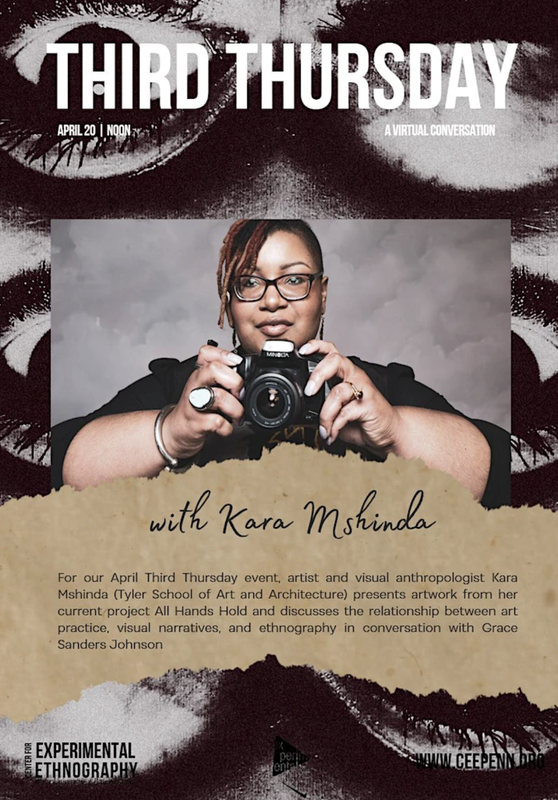
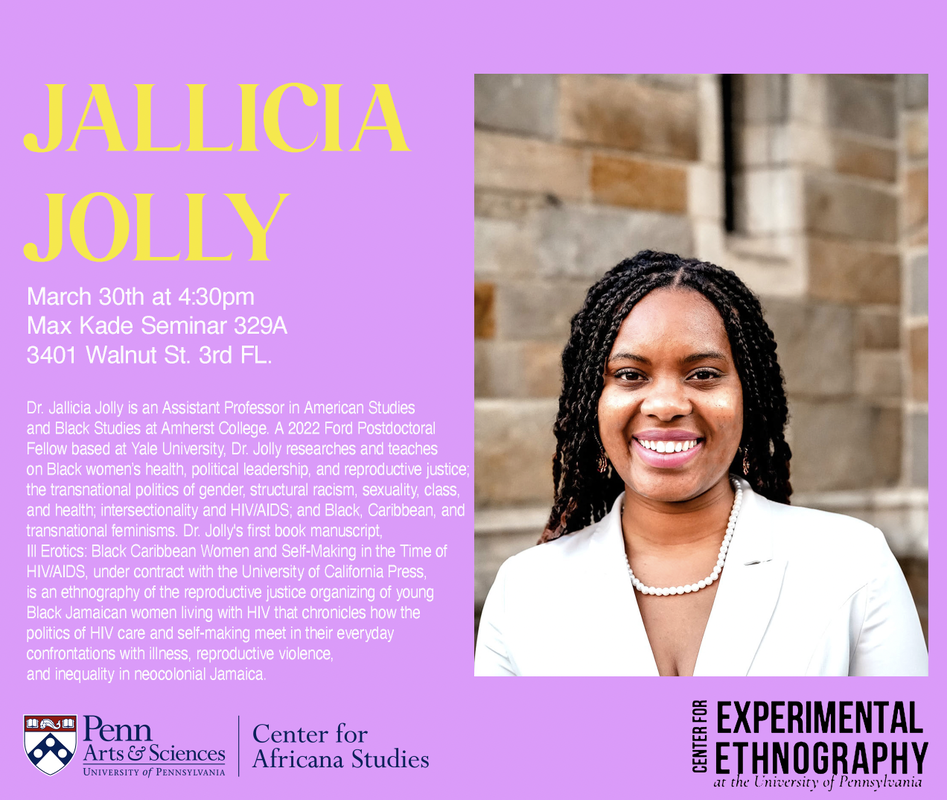
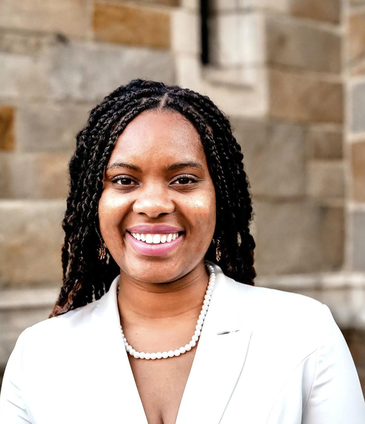
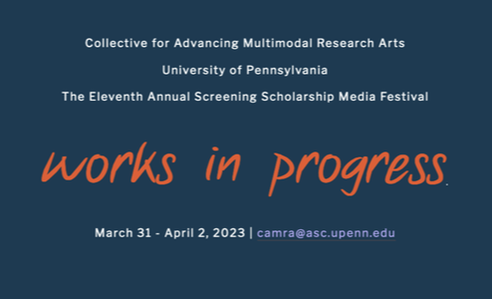
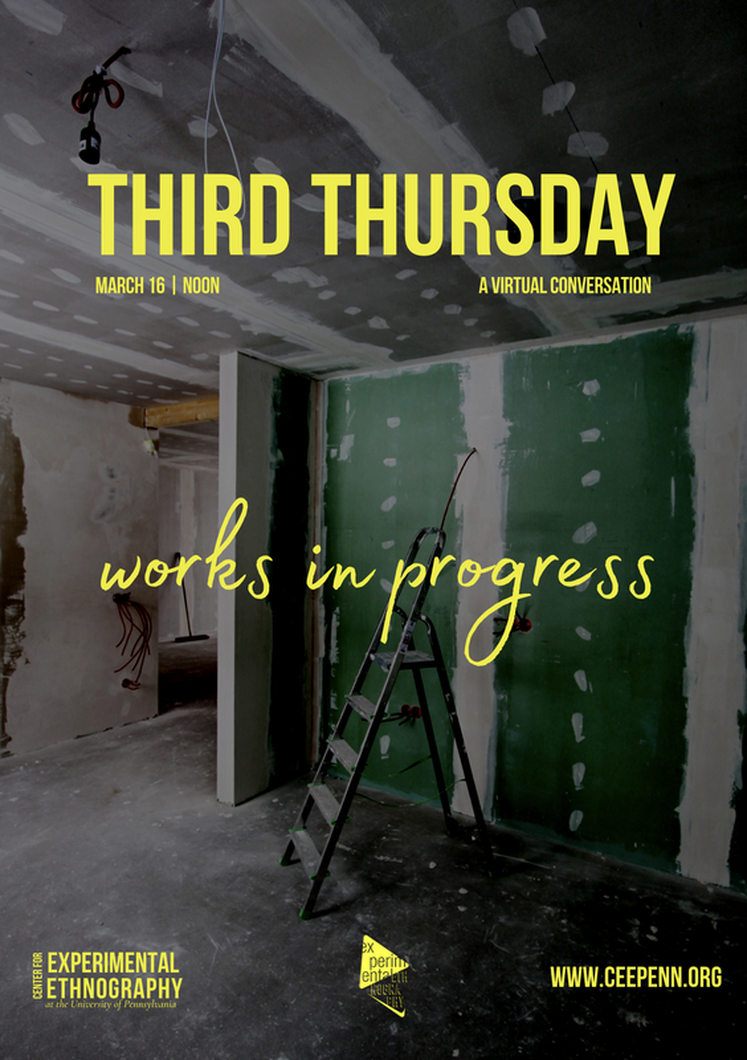
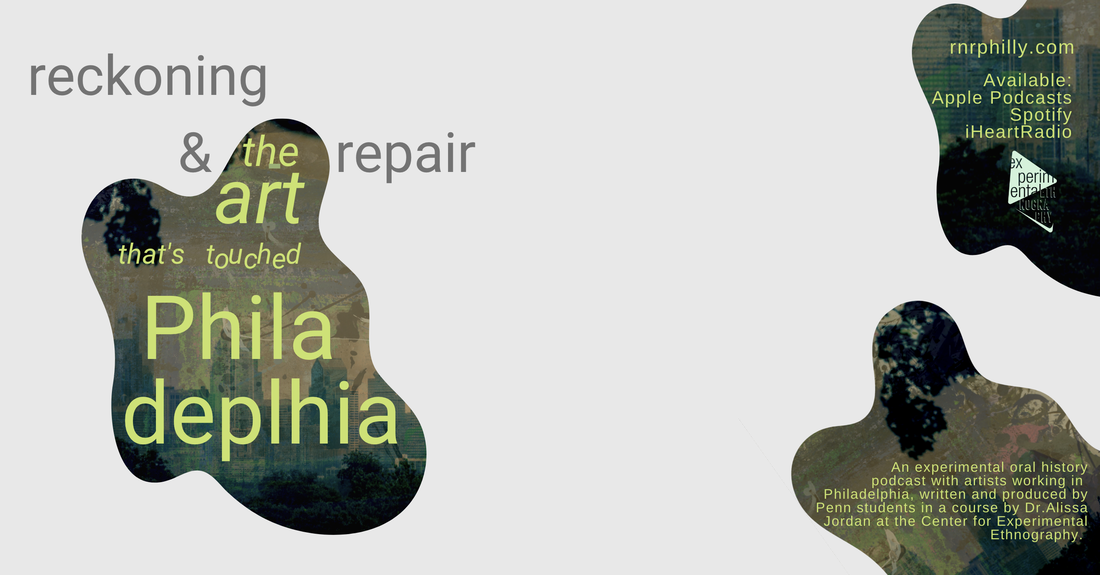
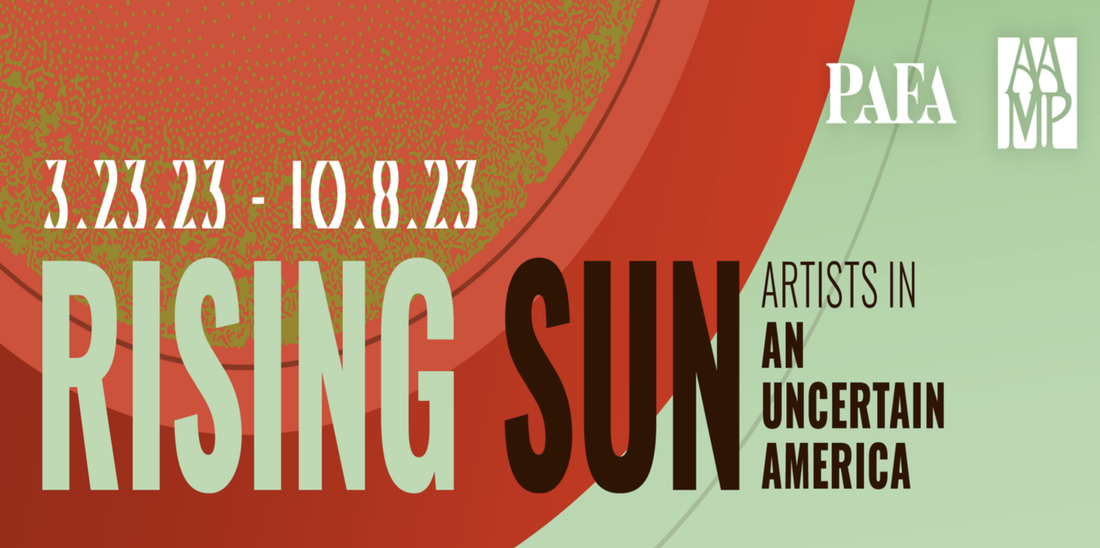
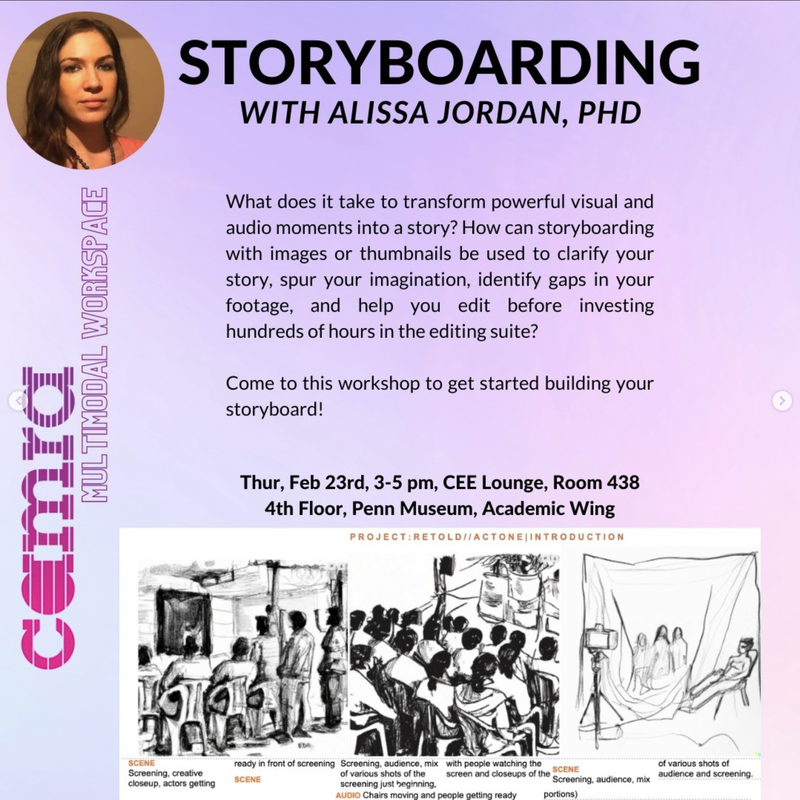
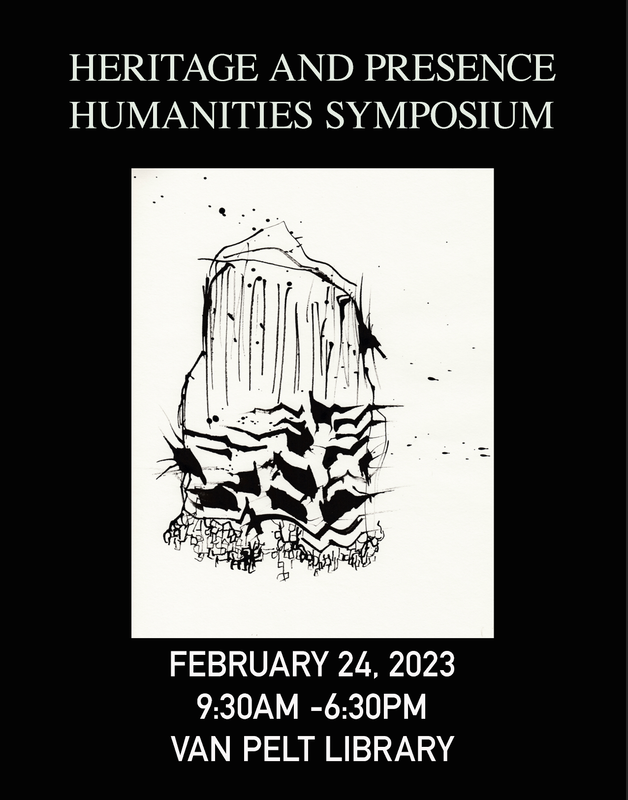
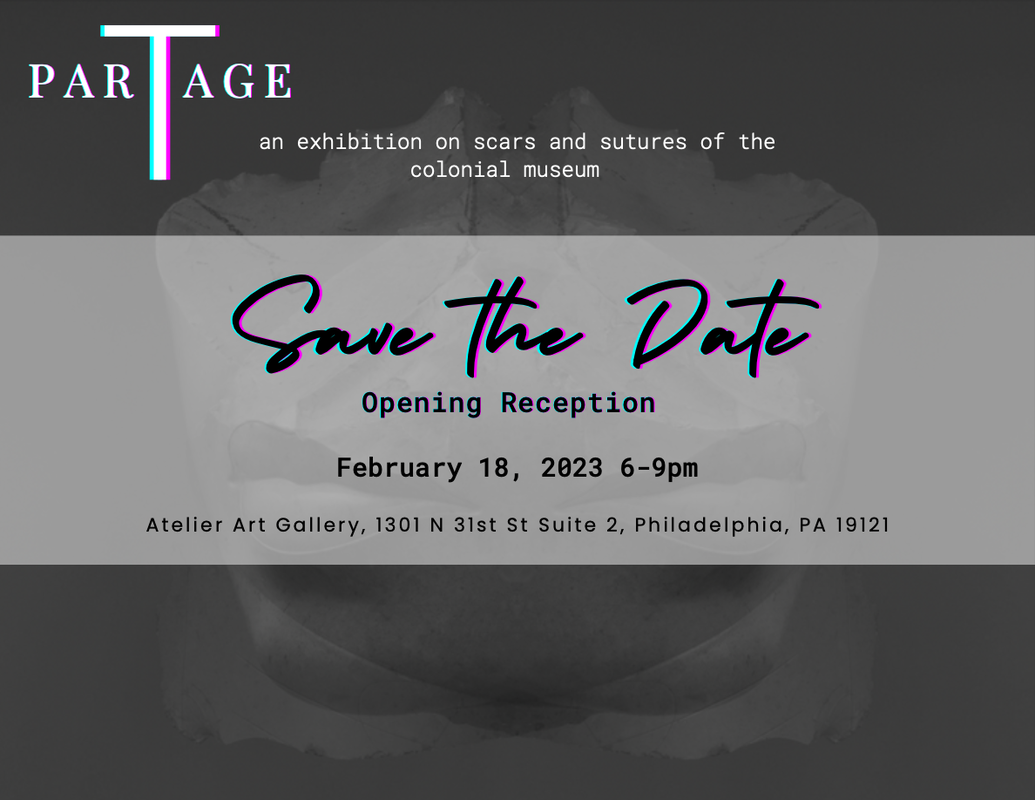
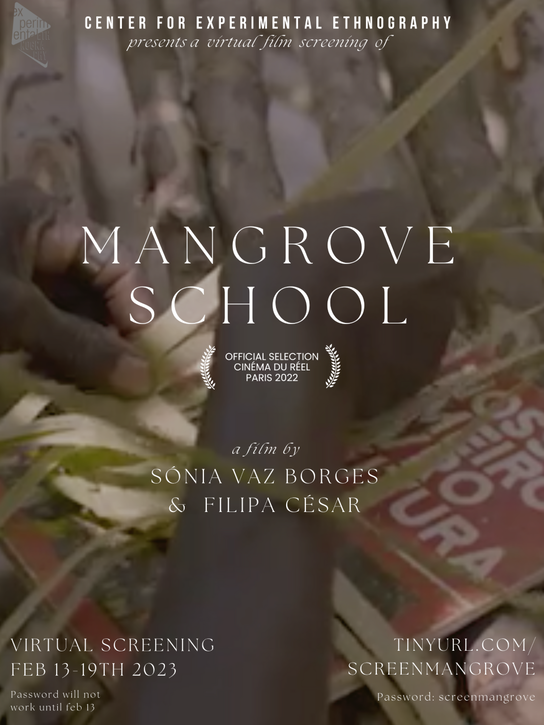
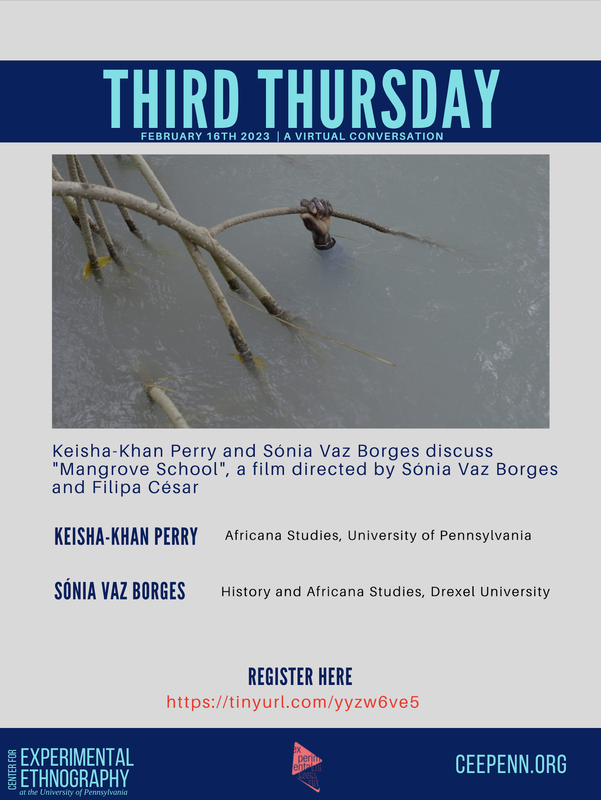
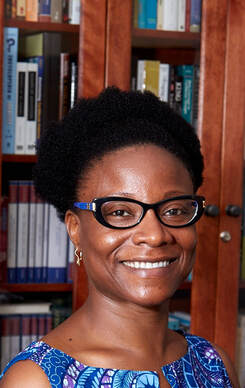
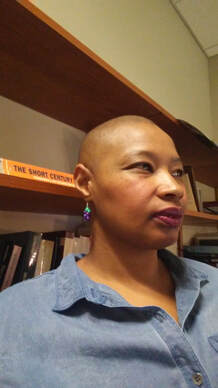
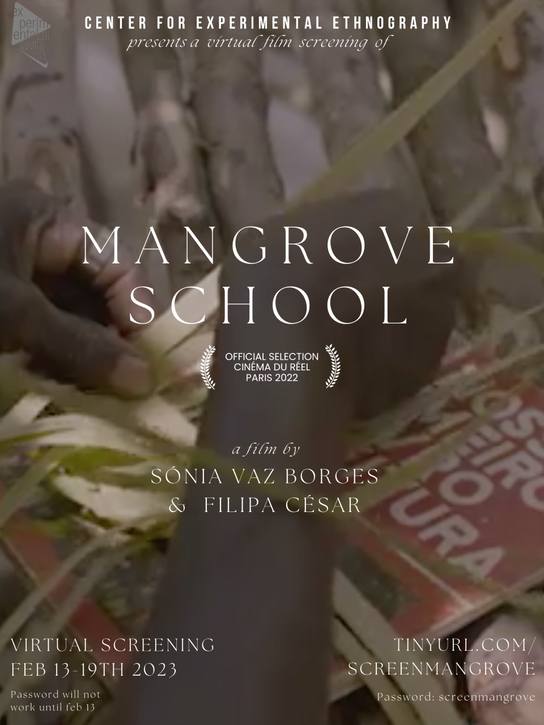

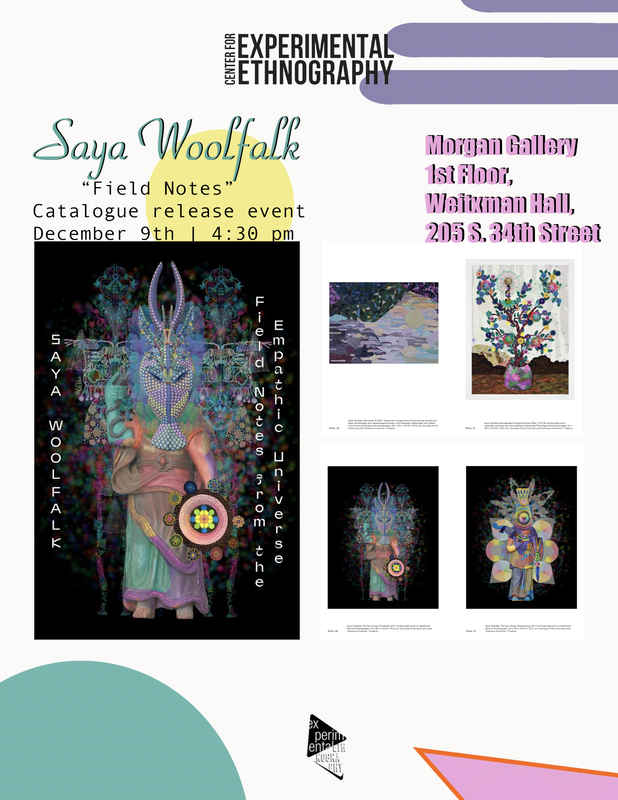
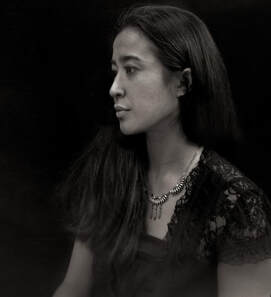
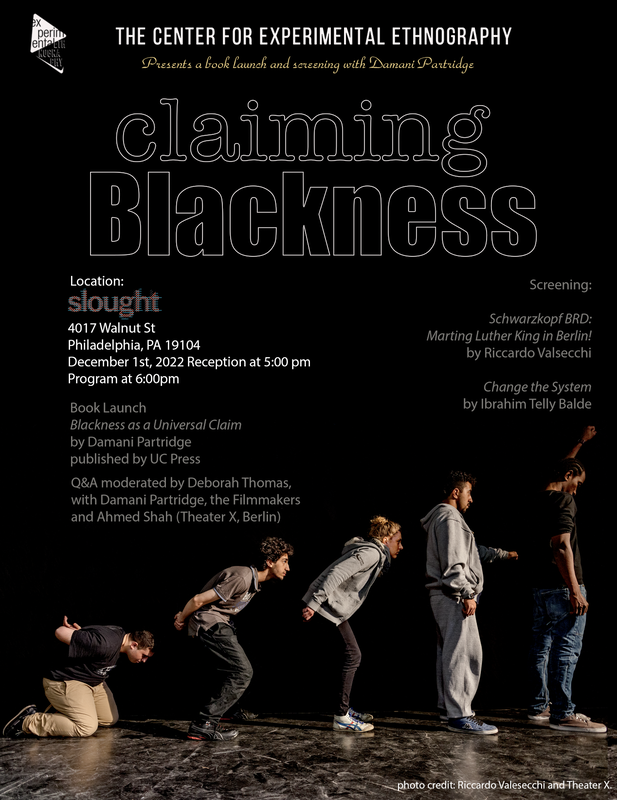
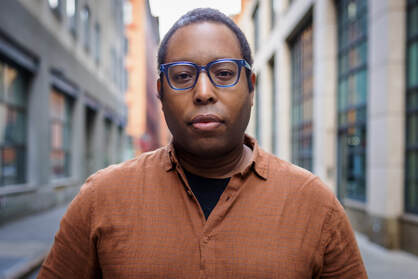
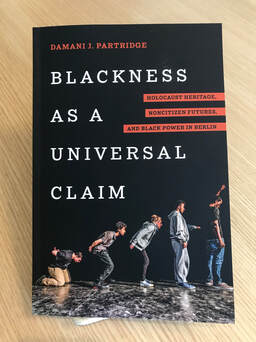
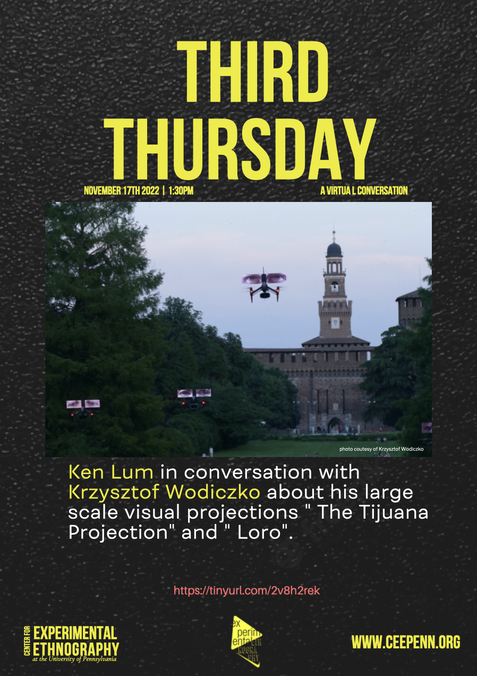
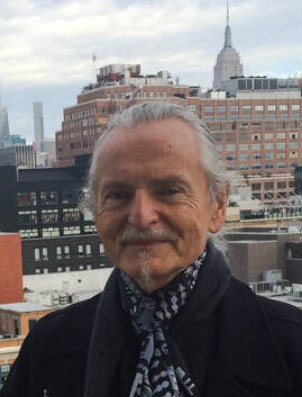
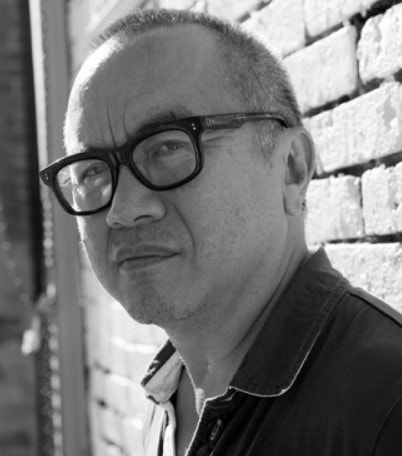
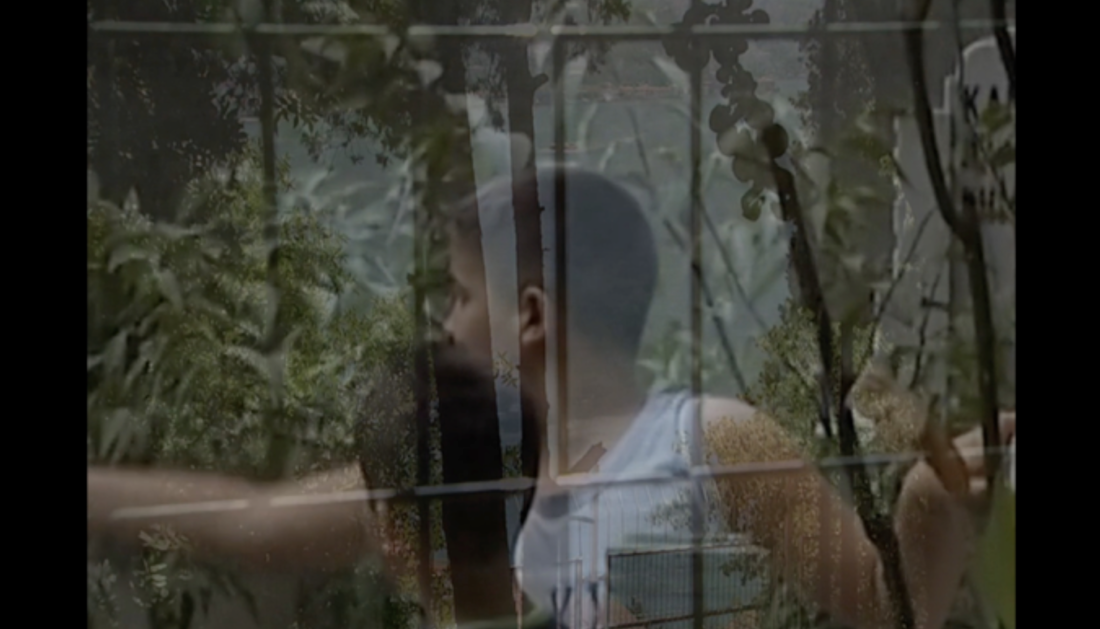
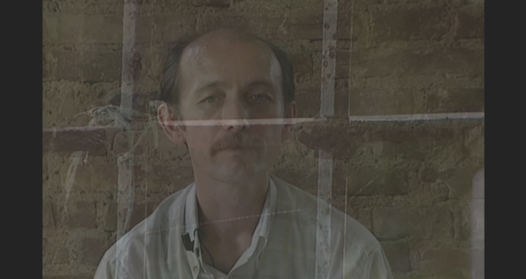
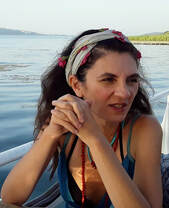
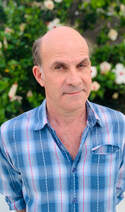
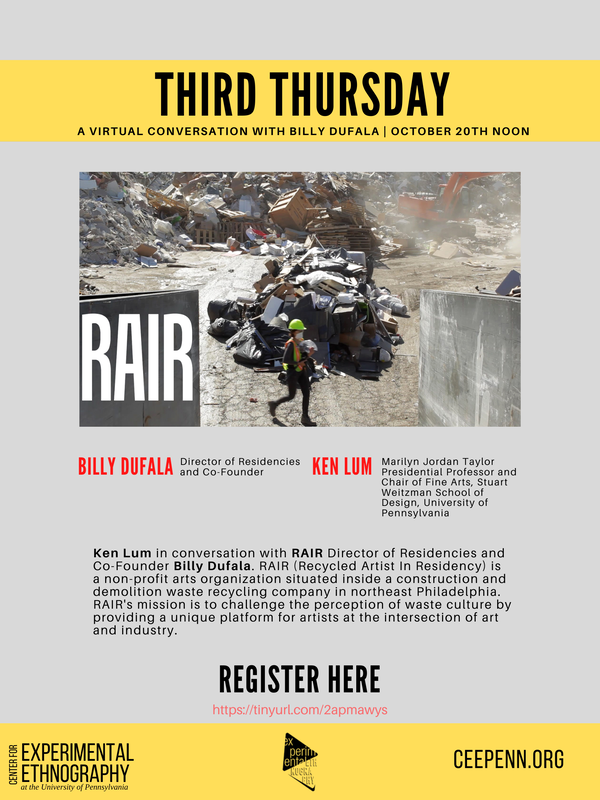
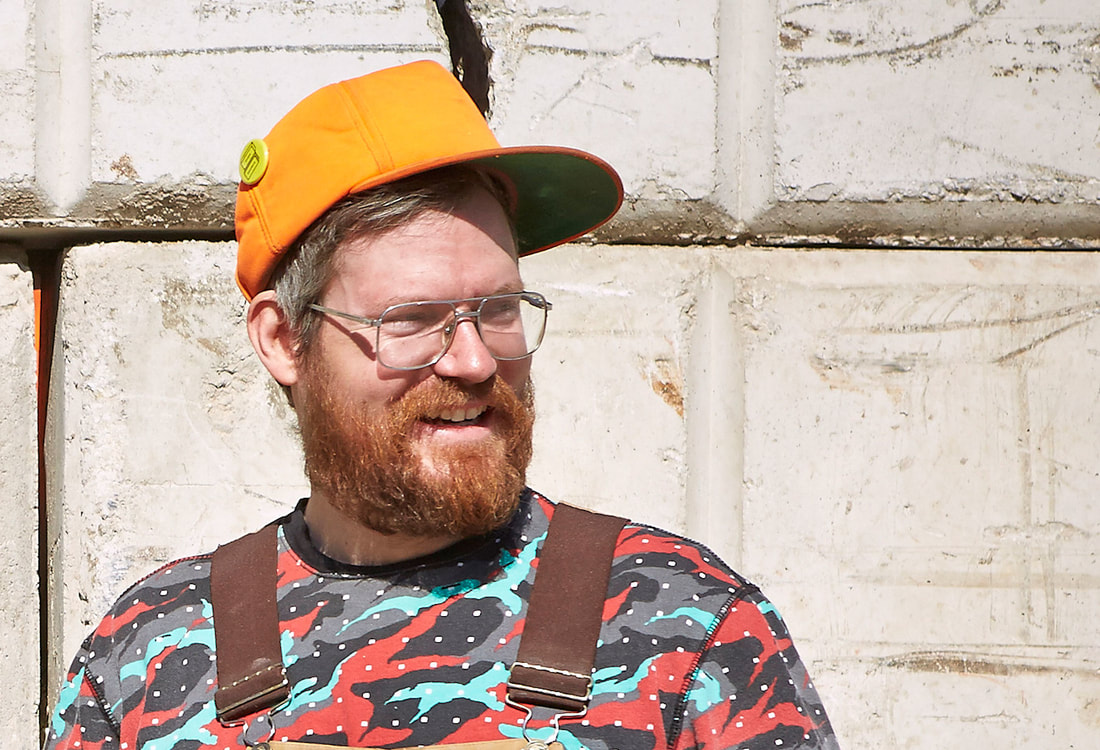
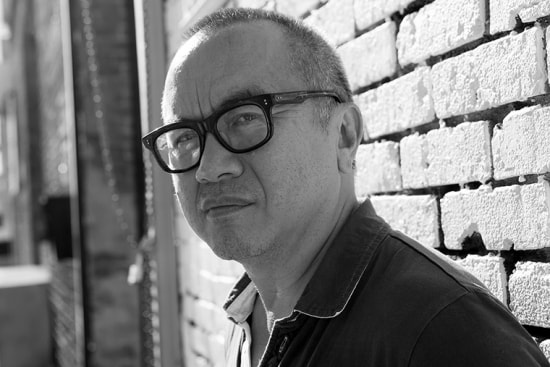
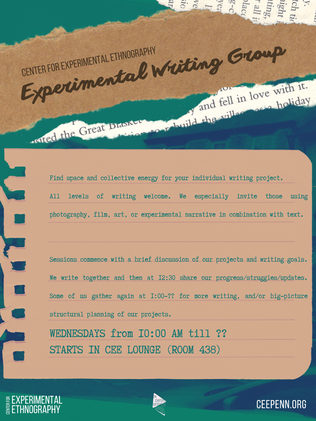
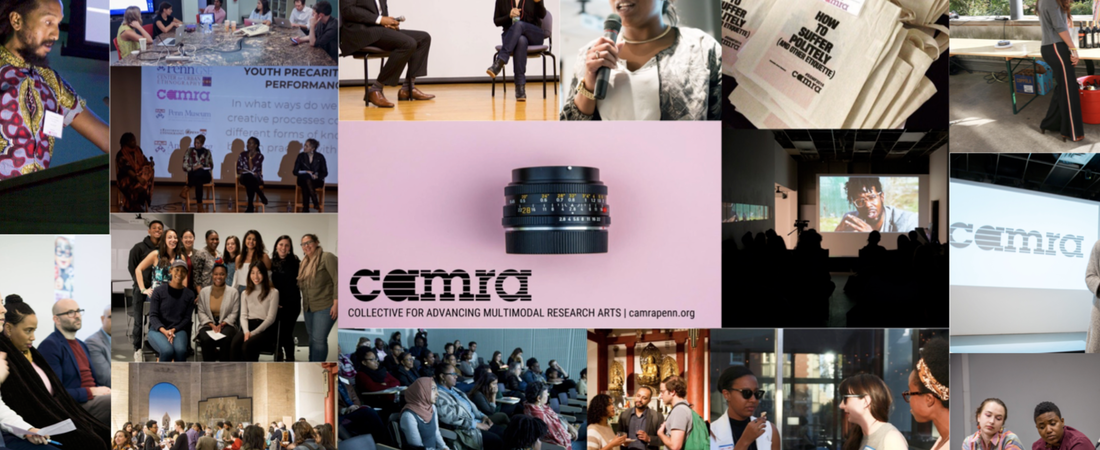
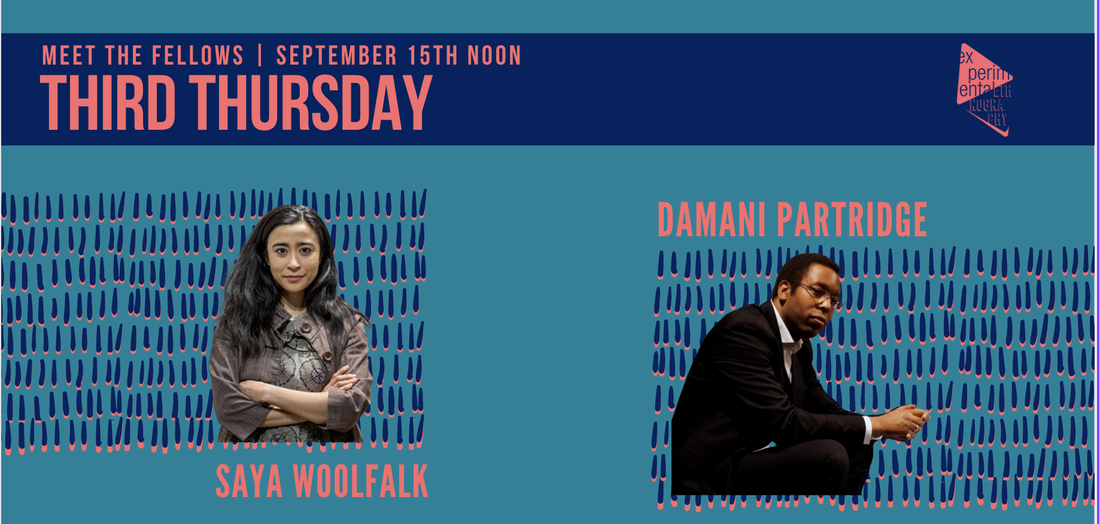
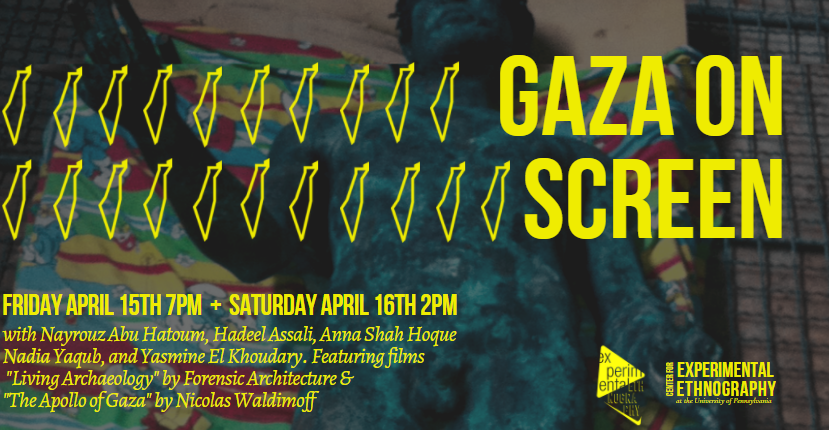
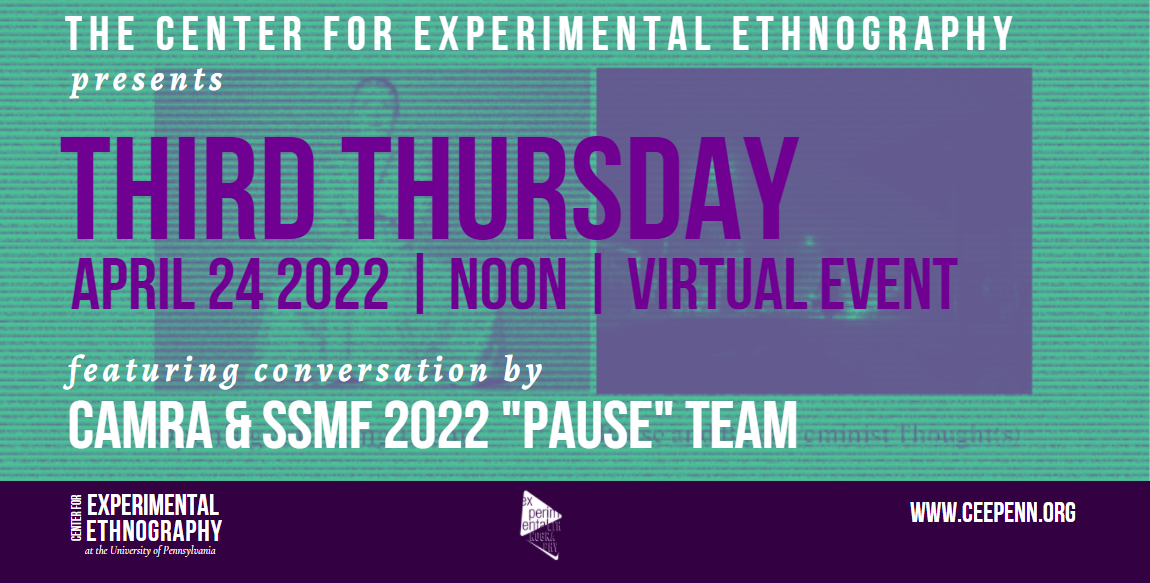
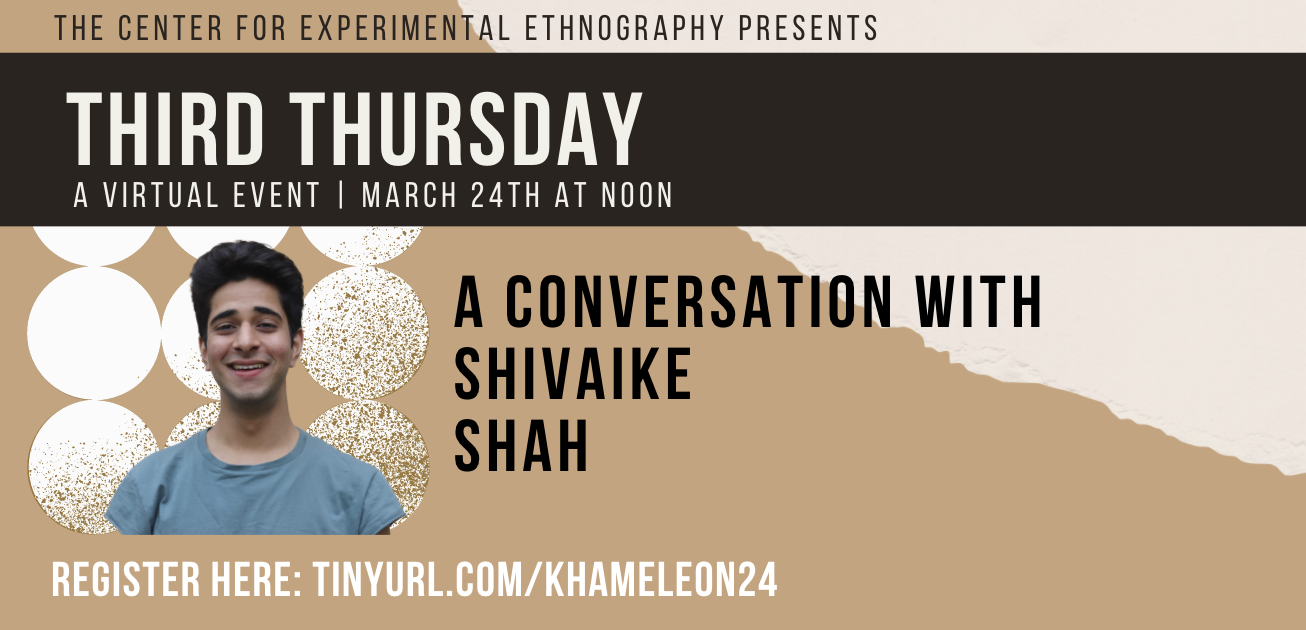
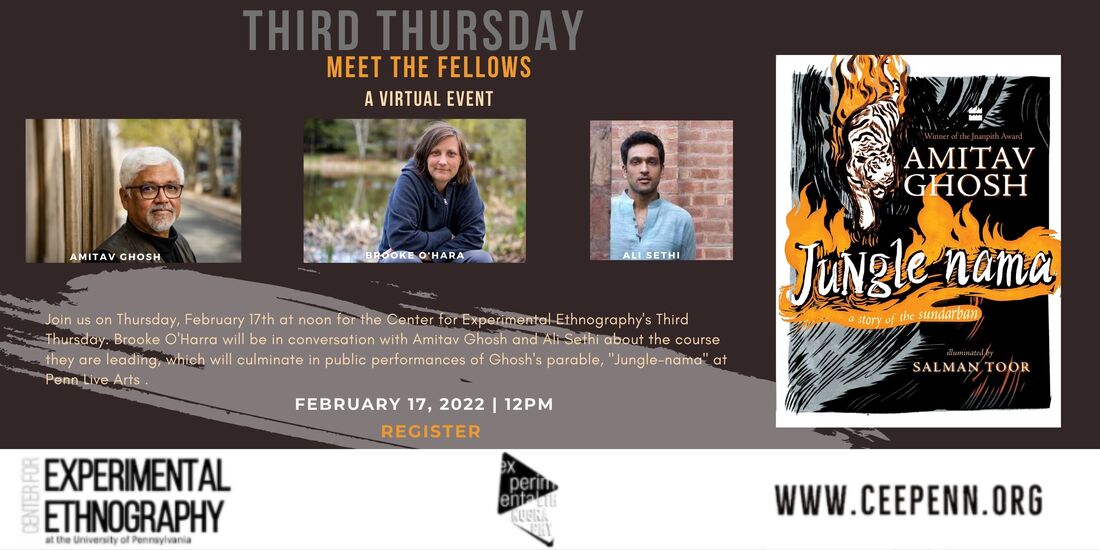
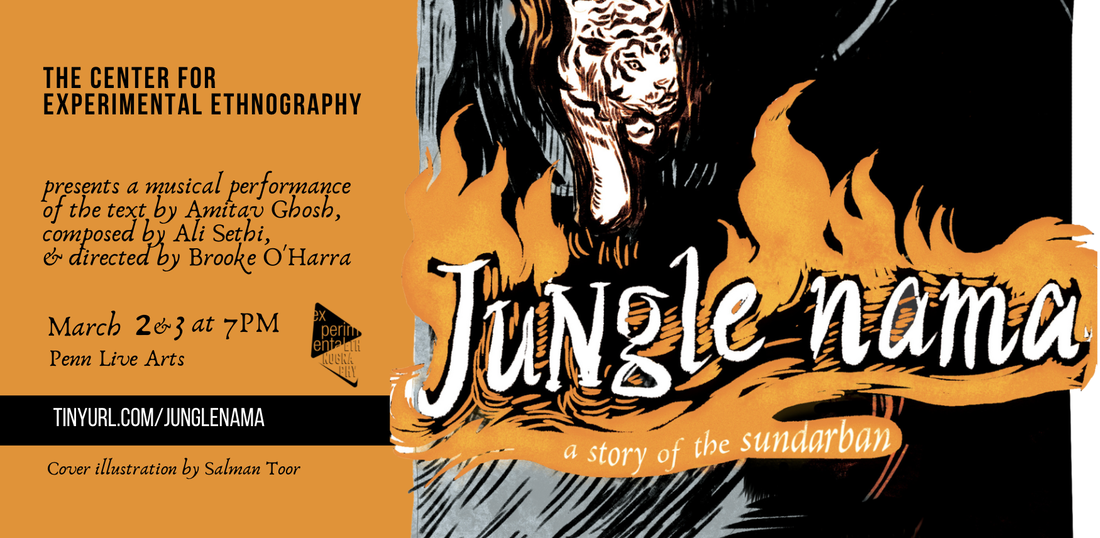
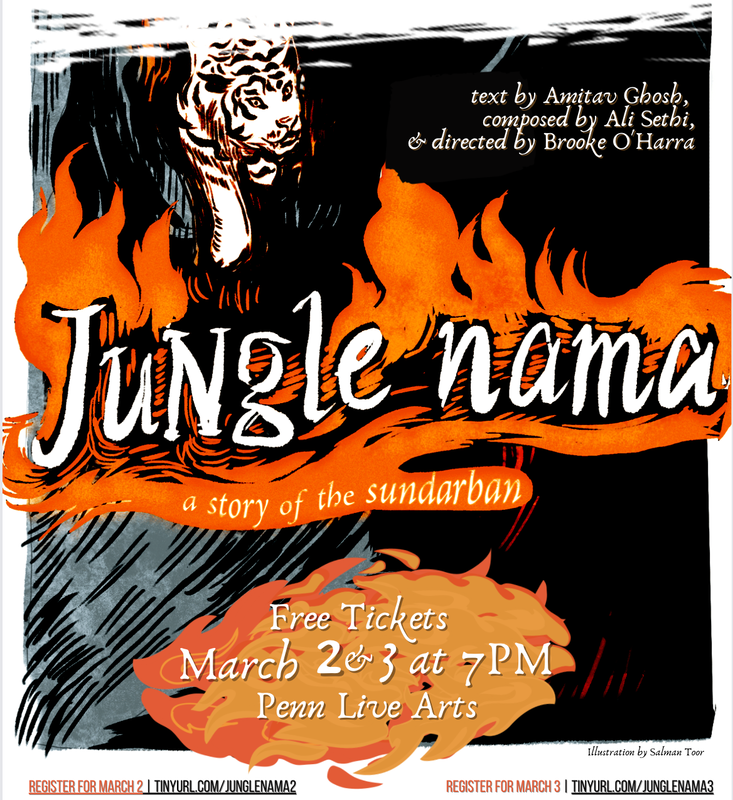
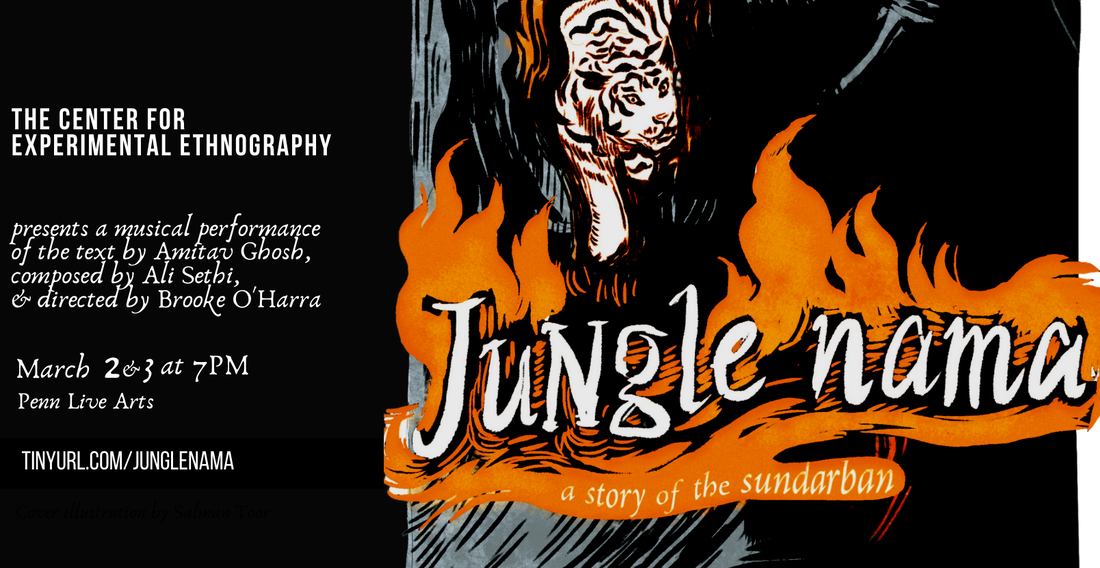
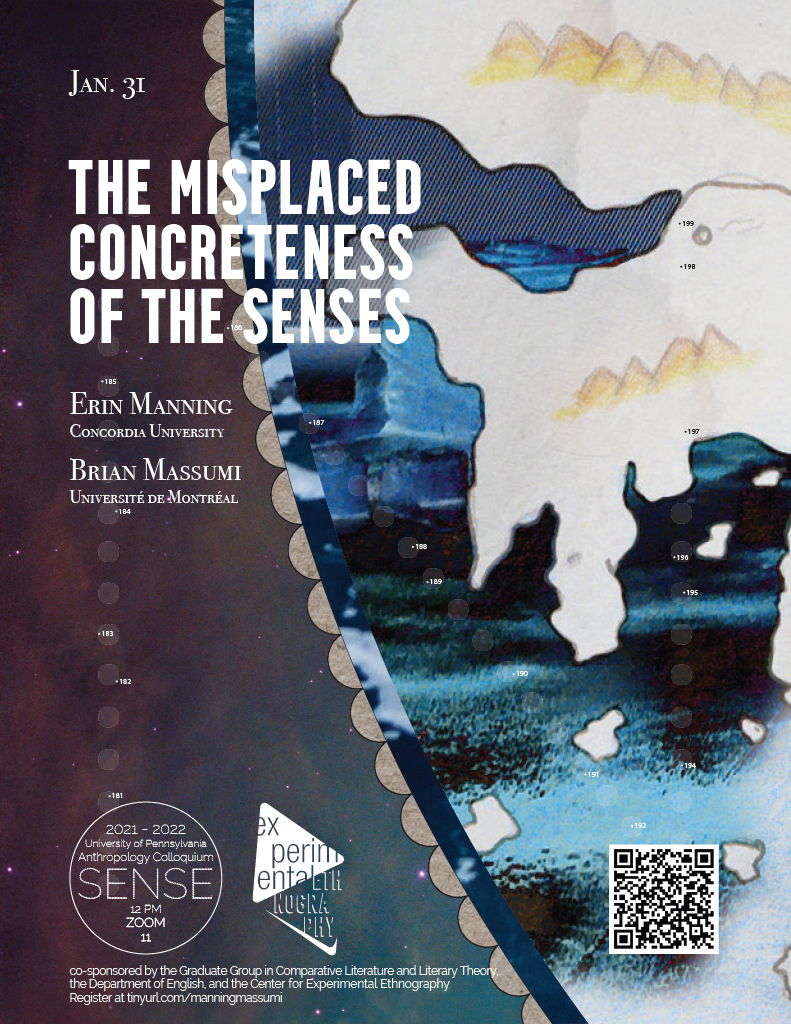
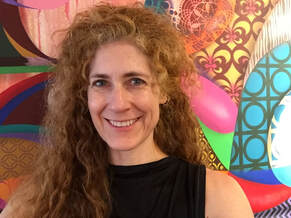
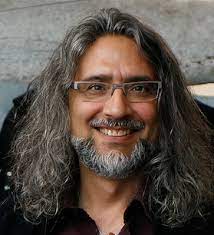
 RSS Feed
RSS Feed